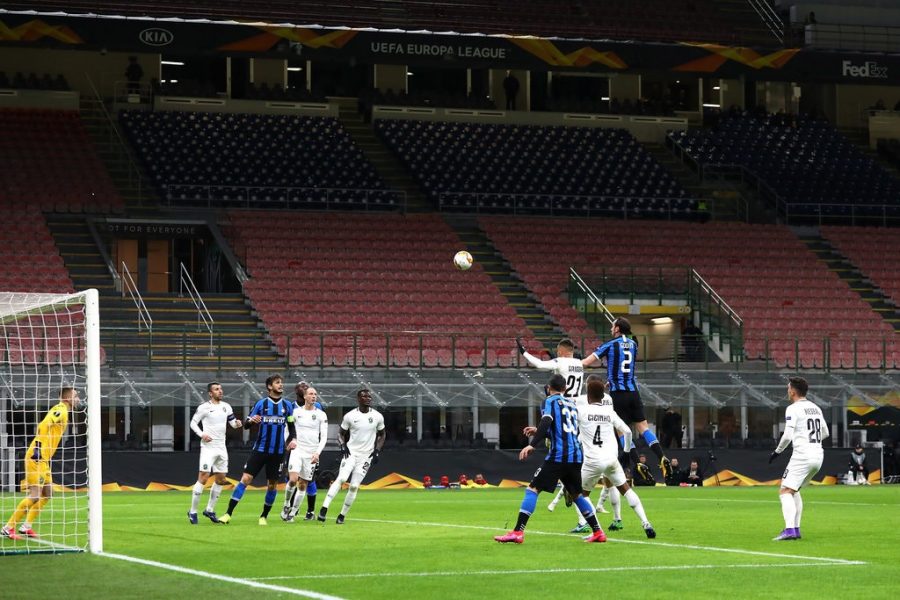When to Resume? Professional Sports Struggle With a Date For Restart
May 28, 2020
As stadiums and arenas around the world sit empty, professional sports teams and leagues are losing billions of dollars, fans have become distraught, and many league employees have lost their jobs. In the United States and abroad, leagues are grappling with the polarizing and painstakingly difficult question of when and how they can reopen.
Almost all professional sports leagues in Europe and the US suspended play in mid-March as the coronavirus began to sweep across the world. In the US, this meant that the National Basketball Association (NBA) and the National Hockey League (NHL) seasons were suspended right before the playoffs were slated to begin, and the start of the Major League Baseball (MLB) season, which usually begins in late March, had to be pushed back to the summer. The virus has affected countries in different ways, and so leagues have put together vastly different protocols for returning to play.
In an early April meeting with professional sports league commissioners, President Donald Trump encouraged American professional sport commissioners to resume their leagues. “They wanna get back; they gotta get back,” Trump said. “They can’t do this. Their sports weren’t designed for it.” Yet while Trump has voiced his anger, no plan to resume play has been presented by league commissioners or the White House. In all likelihood, though, if leagues could resume playing, fans would not be allowed to attend.
If it were a normal year, the NBA and NHL playoffs would have been in full swing by May, the MLB would have been in its second full month of the regular season, and Major League Soccer (MLS) would have been approaching all star break. Although none of these leagues have made formal plans, rumors have circulated that the NBA wants to finish a reduced length season at a single neutral location. Some of the proposed sites are Las Vegas; Atlantis, a resort in the Bahamas; and Disney World in Orlando, which is also being considered by the MLS as a neutral site.
While some are worried if the NBA, NHL, and MLB will return this spring or summer, others are concerned that the fall National Football League (NFL) and college football seasons, as well as and the beginning of next season’s NBA and NHL season could be affected, or at the least, played without spectators. As of now, the NFL has not changed their schedule, backed up by President Trump’s assurances that the 2020-21 season will go ahead as planned.
Outside of the US, Germany’s top soccer league, the Bundesliga, is one of the more notable leagues with plans to resume play. Germany and its government have dealt with the coronavirus outbreak relatively well, with fewer than 7,881 dying of the virus through May 16th, a much lower number than their smaller European counterparts such as France and Italy. Despite promising numbers, three Bundesliga players recently tested positive for COVID-19, which could be a sign of worse to come. Either way, the German chancellor, Angela Merkel, is expected to allow the Bundesliga to resume their season without fans starting on May 15.
Another European soccer league, the Belarusian Premier, has attracted global media attention for not stopping play in the face of the pandemic. This league, in the isolated Eastern European dictatorship of Belarus, has gained a large following around the world, and American sports media outlets have even begun to provide weekly analysis of each of the league’s games.
Some European soccer leagues, notably the Dutch Eredivisie and Belgian Pro League, have already decided to suspend the remainder of their 2019-20 seasons hoping to begin a new season in the fall, even if it is without fans. Few leagues around the world have accepted this fate, but it seems like an increasingly likely scenario, especially if professional leagues want to avoid disruptions to the beginning of their next season.
Although sports fans might be frustrated that they can’t watch professional sports while stuck at home, the consequences of professional sports leagues suspending their seasons are much more grave for the leagues’ employees. The NBA alone employs about 42,000 people as stadium staff, most of whom have recently been furloughed. And even when leagues start again, these people will likely not be able to return to their jobs because most of their roles rely on fans (i.e. concession stand workers and ticketers).
With all the speculation surrounding the coronavirus, one cannot help but wonder if social distancing is the new normal, at least until a vaccine is created. This brings up an unthinkable question: Will it be years until Americans can watch sports in person again? In time, this question will be answered, but until then, Americans, who place so much emotional weight in sports, are left in a state of limbo, waiting for answers.









